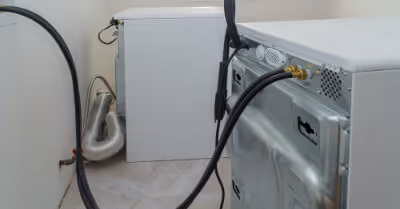Table of Contents
How Do Realtors Become Rich?
There is no one-size-fits-all approach as there are plenty of ways for investors to invest in real estate today. Learning how to make money in real estate is one of the best ways to diversify your portfolio. You could, for example, acquire a cheap real estate property, refurbish it, and resell it to an investor. After the work is completed, you benefit from selling the property for a much higher price than you spent on it.
Investing in Rental Properties
This is the traditional method of making money in real estate and becoming wealthy. You make money in this form of investment by leveraging long-term buy-and-hold residential rents. You may purchase land, construct a home, and then rent it out. For example, you can buy an inexpensive or discounted property, fix it, and give it away on rent. It's a buy-and-hold approach regardless of how you get the property.
Once you have numerous rental properties, this technique will probably allow you to produce a substantial continuous income. All of this necessitates the acquisition of funds to purchase the properties. We advocate putting money aside or using existing savings to make first-time down payments on single-family homes or small multi-family housing units. This money could come from your savings, the equity in your home, or a retirement account. Be sure to set aside a few thousand dollars as an emergency fund to cover unanticipated repair expenditures, legal fees, and other expenses that may arise as contingencies.
A $100,000 house, for example, should rent for roughly a thousand dollars per month. Then, you can put your plan into action. You can either sell the house or get the first several months' rent from your new tenant.
Don't go out and acquire a bunch of properties all at once. Slowly expand to allow for the cost of mistakes to be absorbed. You can't afford to make a blunder with a property management firm, either. You don't want to end up with a million dollars in unsecured debt because you tried to handle 10 rental properties without any prior expertise as a landlord. This is why you should only buy one to three rental properties per year rather than the ten recommended by certain property investment programs.
Remember that each month adds to your property's equity, in addition to the revenue you're bringing in. If you pay down a property's outstanding mortgage quickly, you can significantly enhance cash flow. For example, if you rent a single-family home, you can increase your monthly income from $300 to $1,000. As you expand your real estate portfolio, you'll eventually make millions, and you may have a million-dollar net worth in less than five years.
Investing in Mortgage Notes
Mortgage notes can be an excellent real estate investment for those looking for a steady stream of income. You receive monthly payments that contain both interest and principal when you purchase a mortgage note. It's a consistent source of revenue, similar to what you'd get from a rental property, but you don't have to maintain it as a landlord would. Investing in real estate across the country is significantly easier because you don't have to deal with local real estate licenses or tax regulations. The loan term is specified in the mortgage note. You know how long you'll get loan installments, which might be anywhere from 10 to 30 years.
By purchasing from a distressed note holder, you may be able to raise the value of the mortgage note. They may require the funds for various reasons, including the purchase of a new home or the provision of cash to pay for their retirement. In these situations, you might offer 80,000 dollars to purchase a $100,000 bill. If they accept, you will receive the interest and principal on a $100,000 loan for which you only paid $20,000.
A private lender with a sluggish or non-paying borrower is another type of desperate seller. They aren't getting the money they anticipated. These notes can be purchased for a fraction of their face value. You'll have to either increase your collection efforts or foreclose on the property. Only buy notes like these if you have a strategy for monetizing the property, whether you want to rent it out, sell it, or renovate it.
Real Estate Flipping
This is another tried and tested method for making rapid money in real estate and becoming wealthy. The term "fix and flip" refers to a certain type of real estate investment. The investor buys a property, pays for renovations and repairs, and then sells it for a profit. The truth is that this type of real estate investing carries a significant level of risk. You could lose money if you miscalculate the cost of rehabilitation.
If you try to save money by doing the repairs yourself, the labor savings are countered by the time it takes to make the property ready for sale. DIY repairs that don't satisfy code or potential purchasers' expectations are a risk if you aren't already a skilled building contractor. Then, you risk losing the entire transaction since you'll have to pay someone else to redo what you believed was done. A house that merely needs cosmetic renovations is excellent for a fix and flip, but they are extremely rare.
Real Estate Investment Trusts
Real Estate Investment Trusts allow you to participate in real estate without having to purchase and manage a property. REITs can invest in mortgages, properties, or a combination of the two. By purchasing REITs that are focused on certain market segments, you may diversify your real estate holdings. You may purchase and sell your shares on the open market because they are publicly traded. This will make your money more liquid and diversify your assets. The non-correlation of REITs with other types of stocks is one of its advantages.
Private Lending
Fix-and-flip investors can borrow money from hard money lenders. They may lend money to those who want to buy a house to renovate and then rent it out; in this situation, the property investor gets a regular mortgage after acquiring a desirable property that the bank will now regard as security. When you act as a bank to property buyers, you get a larger rate of return than if you leave money in the bank. You must exercise caution since mistakes could result in the loss of a legitimate lien on the property.
Crowdfunding is an alternative for those who aren't ready to commit a substantial sum of money to a single project. You can lend money to someone who wishes to buy a rental property or put down a deposit on a home.
Appreciation in Real Estate
We term this "appreciation" when the worth of a property rises. Real estate prices have historically appreciated over time, even though appreciation is not always guaranteed. Again, appreciation alone is unlikely to make you a millionaire, but real estate has always increased, averaging 3% per year over the last century. For example, if you paid $250,000 for a property two years ago and it is now worth $350,000, the appreciation made you $100,000 richer, or your assets increased by $100,000.
So, how do realtors become rich? The most common way is to purchase an investment property and gradually increase your portfolio. Remember that the key to leveraging real estate as a tool for wealth creation is knowledge, so make sure you're up to date on the latest happenings in the industry.
Recent Articles
















